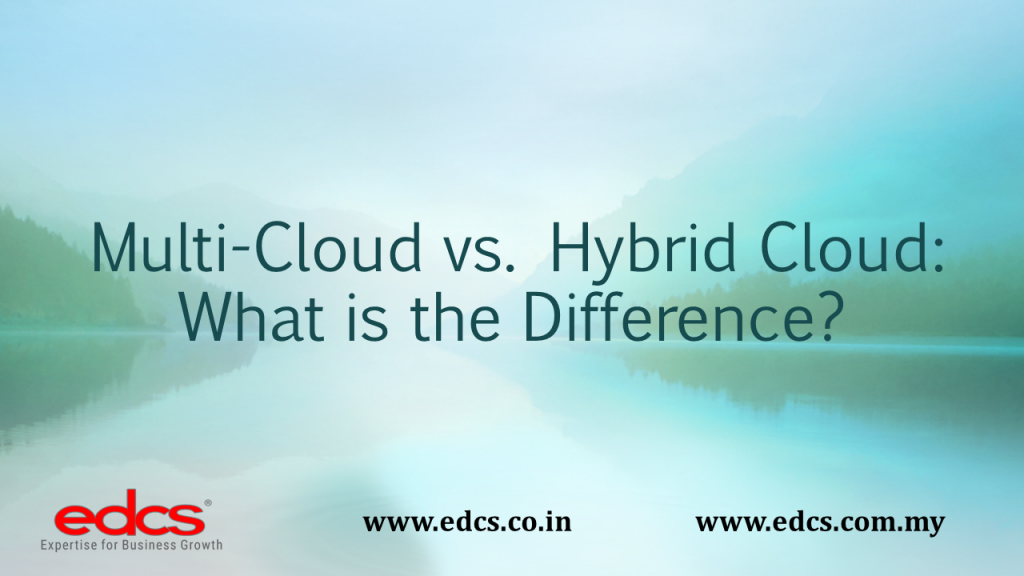How is it possible to run a business in multiple cloud environments and at the same time maintain an active control of the data that is accessible through a secure and controllable interface? We are often asked this question by our users on numerous occasions. The problem is that this is not an easy question to answer as it depends heavily on your personal business strategy. For example, if you are an ecommerce business, you may prefer to run all of your processes in a fully private cloud environment. In such a case, the focus is mainly on private data security and in the best case scenario, you can be 100 percent confident that all of your data is in a vault and out of the reach of third parties.
If you run your business in a more traditional IT infrastructure, you should not have this problem but most likely your business would be looking to keep its data separate from the public cloud environment. For the most part, the solutions available out there fall into one of two categories: multi-cloud or hybrid cloud. There are pros and cons for both, but the key question is what do you want to achieve?
Multi-Cloud Architecture
The first approach to storing business data in different cloud environments is to have a single point of contact where all of your data is centrally stored and accessed. You would be able to modify and customize the solution by adding or removing cloud resources as needed, without being restricted by many different laws and regulation.
This solution typically is designed to accommodate many different technologies, and the support for different clouds might include:
Hybrid Cloud Architecture
You may have a different perspective on how you wish to store and manage your data. By contrast, if you’re looking for a simpler way of hosting your business systems in the cloud, this approach may be right for you. Instead of having a single point of contact, you would want to have different providers providing you with services for specific applications, with one cloud provider handling both private and public infrastructure.
For the most part, you’ll want to choose a single cloud provider for the provision of your software. If you need to support multiple applications across multiple environments, you will need to use different cloud providers for each of these environments. When you are done working with an application or system, you could then choose to close down one instance of that environment and replicate that over to the other.
Getting Started With Your Cloud Infrastructure
With these two cloud strategies in mind, there are some important details that need to be considered. First, you’ll need to decide on which type of service provider you will go with. If you want to keep your data completely separate from the public cloud environment, you will need to choose a private cloud service provider, as it is considered more secure and reliable.
Another thing that you need to be aware of when choosing a private cloud service provider is the level of support you will receive for your cloud deployment. You will also want to be clear on how long you will be required to pay for your service, as some providers require you to pay for their services up front or only provide you with a contract term.
When you have done your research and selected the right cloud infrastructure provider for you, it’s time to start building your solution. As an example, let’s say that you are a hotel and you want to build an application that allows you to manage your reservations. To achieve this, you will need a web server.
This is just the start, however. You will also need a database server. Using the same analogy, the application might be a reservation system for a hotel and the database is your reservation database. It is important to use the correct services for the correct services.
Once you have your databases setup, it’s time to choose the right application server for your application.
On The Server Side, Choosing The Right Platform.
One of the most critical decisions you will make when setting up your private cloud is what database system you will use. Before you look at using any specific database system, it’s important to understand how you will manage your data. For example, if you are a retailer, you will want to use your customers’ credit card data to ensure that you are paid in real time. You’ll need a system that can support this transaction and can sync up with your back office server.If you are a distributor of a product or service, you will want to use a system that can support the exact transactions you will be making with customers and distributors. In order to support such transactions, you will want to use a database system that can support the transactions, with supporting transactions being handled off-site by a trading partner or other third party.
If you want to create a virtual private cloud solution, you may want to use a service like VMware Cloud for VMware that can accommodate all of these different kinds of deployments, and more.
In this scenario, you can use the same set of requirements, but instead of using a single cloud provider to provide all of your infrastructure, you will have different resources from each cloud provider. You’ll need your database, application server, and the application itself running in the different cloud resources.
The same set of requirements applies to public cloud solutions, too, but for a different reason. Public cloud services typically offer a larger pool of resources than a private cloud environment can offer, so you will need to pay more for each resource. A public cloud provides a lot of flexibility, however, so if you are looking to invest in a fully virtualized environment, it’s the most flexible option available.



